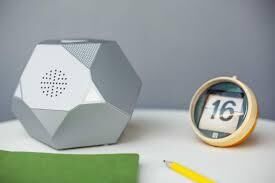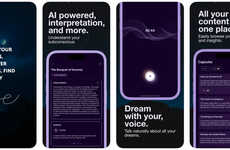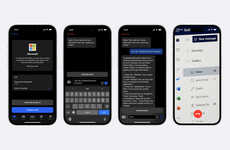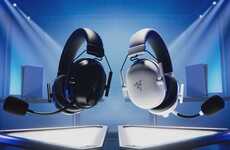
Visualfy Empowers Individuals with Hearing Loss
References: globalvillagespace & visualfy
Spanish start-up Visualfy's AI home assistant places more emphasis on accessibility than traditional gadgets of its kind. The brand harnesses the power of artificial intelligence to prioritize safety and autonomy for individuals with hearing loss.
Visualfy's AI home assistant relies on an app and hardware suite. The technology makes use of sound recognition AI to identify critical sounds like fire alarms and baby cries. Visualfy Home offers peace of mind by detecting home sounds and signaling alerts through colored lights and vibrations on various devices without requiring installation. The product is a testament to AI's significance in more access-friendly living.
Visualfy ensures inclusive design and a commitment to a "nothing for us without us" mentality by involving deaf individuals on the product development team. With its innovative approach and focus on accessibility, Visualfy appeals to consumers seeking enhanced safety and independence for themselves and their families.
Image Credit: Visualfy
Visualfy's AI home assistant relies on an app and hardware suite. The technology makes use of sound recognition AI to identify critical sounds like fire alarms and baby cries. Visualfy Home offers peace of mind by detecting home sounds and signaling alerts through colored lights and vibrations on various devices without requiring installation. The product is a testament to AI's significance in more access-friendly living.
Visualfy ensures inclusive design and a commitment to a "nothing for us without us" mentality by involving deaf individuals on the product development team. With its innovative approach and focus on accessibility, Visualfy appeals to consumers seeking enhanced safety and independence for themselves and their families.
Image Credit: Visualfy
Trend Themes
1. Inclusive AI Technology - Products that incorporate artificial intelligence for accessibility demonstrate a growing trend in inclusive design, ensuring broader usability for individuals with disabilities.
2. Sound Recognition Systems - Developing AI systems that identify and respond to critical sounds marks an advancement in home safety and automation for hearing-impaired users.
3. Enhanced Home Autonomy - Devices that increase personal autonomy through non-invasive alerts and notifications are transforming home environments for greater independence.
Industry Implications
1. Assistive Technology - Innovations in assistive technology continue to drive advancements in tools and devices designed to support individuals with sensory impairments.
2. Smart Home Market - The smart home sector is expanding to include more accessible and user-friendly solutions for people with various disabilities.
3. Artificial Intelligence - AI's role in creating accessible and adaptive technologies underscores its potential to revolutionize daily living for users across different ability levels.
5.9
Score
Popularity
Activity
Freshness
























